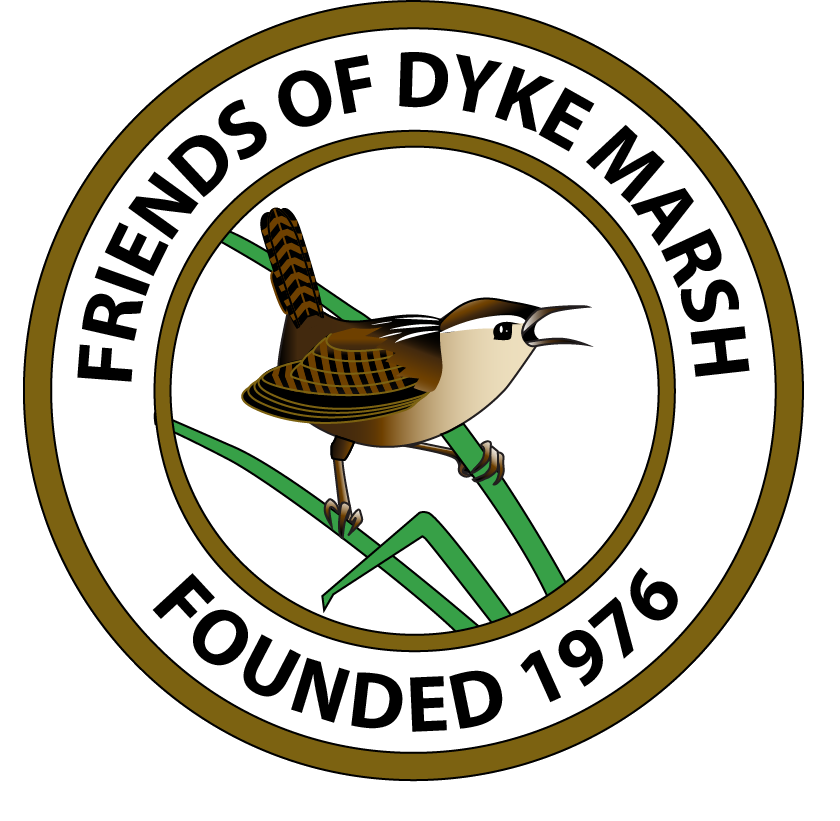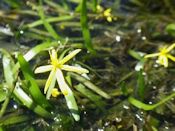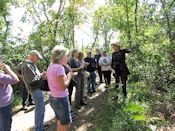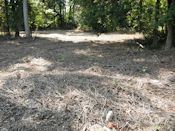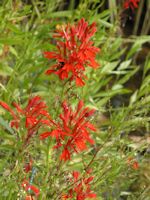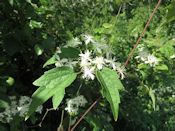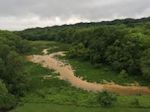FODMers and friends learned about the importance, abundance and distribution of submerged aquatic vegetation (SAV) in the Potomac River on September 13, 2017, when Dr. Nancy Rybicki, U.S. Geological Survey aquatic plant biologist and hydrologist, spoke to 55 attendees.
News
On a walk that FODM announced as a “plant walk,” 25 Dyke Marsh enthusiasts enjoyed the flora, fauna and more on a balmy September 9, 2017, in Dyke Marsh. Retired George Washington University botany professor Elizabeth Wells led the group along the Haul Road trail out to the boardwalk for almost three hours. Ms. Wells depth of knowledge and the rich biodiversity of the marsh easily held everyone’s attention.
Many visitors to Dyke Marsh who walk along the Haul Road trail have questions about the cleared area on the west side of the trail across from “Dead Beaver Beach.”The answer: The National Park Service and FODM are creating a demonstration plat, clearing the area of a massive invasive plant infestation and eventually planting some native plants.
The bright, scarlet cardinal flowers (Lobelia cardinalis) blooming in Dyke Marsh in August and September 2017 are delighting many visitors, including migrating hummingbirds. “The tube-shaped flowers have two lips, the upper having two lobes and the lower lip so fragile, many insects cannot land on the plant to reach the nectar,” according to the guidebook, Walking the Wetlands.
A stand of native clematis, Clematis Virginiana, has been growing on a shrub along the “long bridge” (bridge 23) in Dyke Marsh on the Mount Vernon Trail. This is not the same as the non-native clematis that FODM “weed whackers” try to control, a plant called sweet autumn clematis or Clematis Terniflora.
On July 1, 2017, several FODMers and members of the Westgrove PACK (Pumphouse Association for Canine Kindness), the dog park friends’ group, visited the completed Quander Road outfall project, west of the dog park and Dyke Marsh West.
